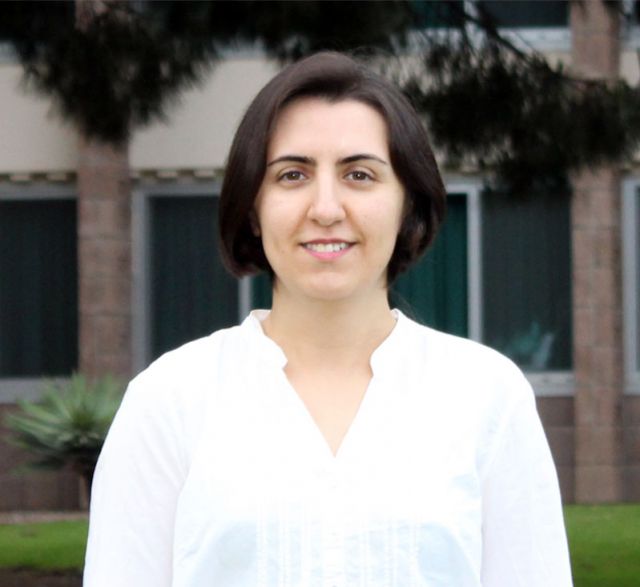
Student Spotlight: Zahra Fahimi
The ECE Current Newsletter (Fall 2020)
- Why did you choose UCSB’s Electrical and Computer Engineering department? The Computer Engineering (CE) program offered at UCSB is one of the best in the U.S. The distinguished faculty, marvelous opportunities for collaboration, nutritious atmosphere to conduct research, and top-notch facilities are a few reasons that motivated me to choose UC Santa Barbara’s ECE department for my graduate studies. Our group is one of the best in neuromorphic computing; we have state-of-the- art technology to fabricate memristors, and our research is mostly experimental and collaborative, which makes it both exciting and encouraging.
- How did you learn about the program? I did a lot of research in my undergraduate and graduate studies on the opportunities in integrated circuits and neuromorphic computing. I also did joint work with Professor Strukov’s group as a visiting scholar for one year. The group is working on cutting-edge technologies. This experience led me to work hard, prove myself, and register in the PhD program.
- What is campus life like for ECE students? The ECE department offers a comprehensive curriculum that prepares students in a wide range of career options. While students are on campus we are involved in different academic activities. Either they attend classes, are in laboratories performing experiments and simulations, or they participate in academic events like seminars, lectures, and discussions. It is such a great positive atmosphere.
- Looking back, what do you think you would have wanted your parents to know about UCSB ECE? I’d like to assure them that the ECE department is a fantastic place for developing a career. They offer different research categories that provide a variety of options for students to choose their career. It is also located very close to Silicon Valley, which could be useful for finding internships or full-time positions. It is a safe and wonderful place to live.
- Students and parents often ask, what can you do with a computer engineering degree? There are a lot of opportunities in this field. A lot of positions are available in industry for designing electronic devices, circuits, systems in mobile devices or smart vehicles. Many students secure jobs in software companies, for example as machine learning specialists. Some students start their own companies, and some enter research labs or academia.
- What prepared you the most for studying engineering in college? During high school, I studied very hard and put a lot of effort into learning physics and mathematics, which are the foundations of any engineering program. I also did the experiments in laboratories with a lot of passion and energy.
- What were some challenges you faced as a student? Experimental research is full of different challenges. For example, in our group we design large scale systems in centimeter scale using devices in nanoscale that translate into circuits with many millions of devices. Designing such systems is very complicated and requires so much effort, energy, and time. But the passion to build something useful, the love of this job, and the joy of looking at the micrograph helps us accomplish this.
- Can you tell us of anyone who you looked up to? Before entering into college, I looked up to my brother who is also an electrical engineer. His passion for electronic circuits inspired me to become an engineer myself. Now, I look up to women in scientific computing and electrical engineering.
- What have you learned that has surprised you the most so far? In the ECE department, the research on circuits spans over a wide range of frequencies and applications with some people working on Terahertz systems. I found (and still find) it very surprising that we can fabricate these systems in sub-deca nanometer scales and predict their behavior almost precisely.
The ECE Current - "Student Spotlight: Zahra Fahimi" (page 10)